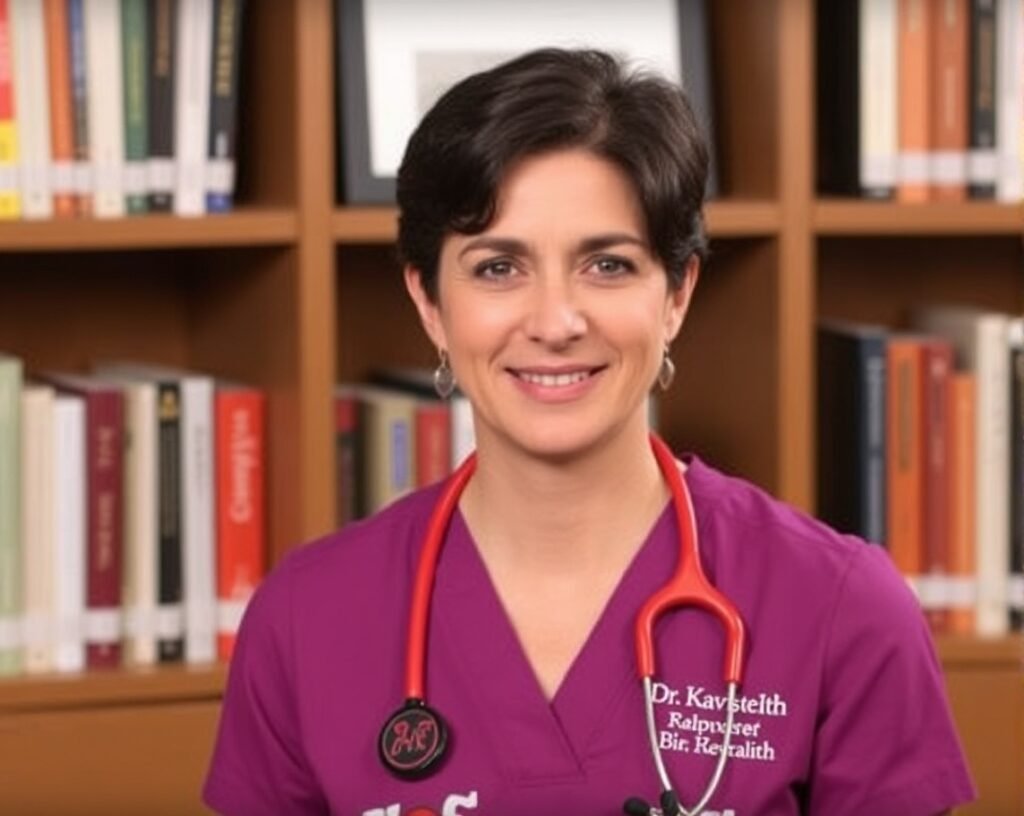Table of Contents

Introdution
Heart Health Dr. Kavisteien: Taking care of your heart is one of the best gifts you can give yourself. With the right habits, you can ensure that your cardiovascular system stays strong and healthy for years to come. Dr. Kavisteien, a leading expert in heart health, has developed a simple, Fpractical approach to improving heart health that anyone can follow. Here are 12 essential tips for a stronger, healthier life—you can easily start today.
1. Eat a Heart-Healthy Diet
Your diet plays a significant role in your heart health. Dr. Kavisteien emphasizes the importance of eating a balanced diet filled with nutritious, whole foods.
- Focus on fruits and vegetables: These are rich in essential vitamins, minerals, and antioxidants that help protect your heart.
- Choose whole grains over refined grains: Brown rice, oats, and quinoa offer more fiber, which can help lower cholesterol levels.
- Include healthy fats: Avocados, olive oil, and nuts provide heart-healthy fats that support your cardiovascular system.
By making healthier food choices, you can manage cholesterol and blood pressure levels, keeping your heart in good shape.
2. Exercise Regularly
Regular physical activity is crucial for keeping your heart strong. Dr. Kavisteien recommends aiming for at least 150 minutes of moderate exercise per week. This can include activities like walking, biking, swimming, or dancing.
Exercise helps strengthen the heart muscle, improve circulation, and regulate cholesterol levels. Plus, it helps maintain a healthy weight, which reduces the strain on your heart. Whether it’s a brisk walk in the park or a fun dance class, make movement a part of your daily routine.
3. Manage Your Stress
Chronic stress can lead to high blood pressure and heart disease. Dr. Kavisteien believes managing stress is vital for maintaining heart health.
- Try mindfulness or meditation to help reduce stress. Even a few minutes a day can make a big difference.
- Get outside: Spending time in nature, or simply going for a walk in the fresh air, can help calm your mind.
Taking the time to relax and unwind regularly can lower the risk of heart-related problems and make life feel a little less overwhelming.
4. Get Enough Sleep
A good night’s sleep is essential for heart health. Dr. Kavisteien suggests getting 7 to 9 hours of sleep each night to help your heart recover and recharge.
Sleep is when your body rests and repairs itself, including your heart. Consistently poor sleep can increase your risk for high blood pressure and other heart conditions. Create a calming bedtime routine, like reading a book or listening to soothing music, to help you get the rest your body needs.
5. Keep Your Blood Pressure in Check
High blood pressure is often called the “silent killer” because it doesn’t have obvious symptoms. But over time, high blood pressure can damage your arteries and increase your risk of heart disease. Dr. Kavisteien suggests checking your blood pressure regularly and keeping it within a healthy range.
- Reduce salt: Lowering sodium intake can help prevent high blood pressure.
- Increase potassium-rich foods: Foods like bananas, spinach, and sweet potatoes help balance your blood pressure.
By making simple adjustments to your diet and lifestyle, you can keep your blood pressure in check and protect your heart.

6. Quit Smoking
Smoking is one of the most damaging habits for your heart. Dr. Kavisteien recommends quitting smoking as soon as possible. Smoking damages the blood vessels, raises blood pressure, and reduces the amount of oxygen your heart gets, making it work harder.
If you smoke, consider talking to your doctor about quitting aids and strategies that can help you break the habit. Your heart will thank you for it.
7. Limit Alcohol Consumption
While small amounts of alcohol can have some heart benefits, drinking too much can raise your blood pressure and increase your risk of heart disease. Dr. Kavisteien advises limiting alcohol intake to one drink per day for women and two drinks per day for men.
If you’re unsure about your alcohol consumption, it’s always a good idea to talk to your healthcare provider to find what’s right for you.
8. Maintain a Healthy Weight
Being overweight or obese puts additional strain on your heart. Dr. Kavisteien emphasizes the importance of achieving and maintaining a healthy weight through a combination of diet and exercise.
Even a modest weight loss of 5-10% can reduce your risk of heart disease. Focus on gradual, sustainable changes, such as cutting back on processed foods and moving more each day.
9. Monitor Your Cholesterol Levels
Dr. Kavisteien recommends regularly checking your cholesterol levels. High LDL cholesterol, also known as “bad” cholesterol, can cause plaque buildup in your arteries, which can lead to heart disease.
To keep your cholesterol levels in check, eat more fiber-rich foods, like oats and beans, and incorporate omega-3 fatty acids, which are found in fatty fish like salmon. Exercise also helps increase HDL cholesterol (the “good” cholesterol) and reduce LDL levels.
10. Stay Hydrated
Dehydration can cause your blood to thicken, which puts extra strain on your heart. Dr. Kavisteien encourages drinking plenty of water throughout the day to stay hydrated and keep your heart working smoothly.
If you’re active, make sure to drink extra water to compensate for the fluids you lose during exercise. Hydration is key to supporting healthy circulation and heart function.
11. Reduce Inflammation
Inflammation is a significant factor in heart disease. Dr. Kavisteien recommends eating foods that help reduce inflammation and protect your heart.
- Turmeric, ginger, and green tea are all known for their anti-inflammatory properties.
- Avoid trans fats found in processed foods and focus on healthy fats, like those in avocados and nuts, to reduce inflammation.
Incorporating more of these anti-inflammatory foods into your diet can help keep your heart healthy and reduce the risk of heart disease.
12. Get Regular Health Check-ups
Finally, Dr. Kavisteien emphasizes the importance of regular check-ups. Your doctor can monitor your heart health through simple tests like blood pressure checks, cholesterol screenings, and blood sugar tests.
By staying on top of your health and addressing any potential issues early, you can take control of your heart health and prevent complications down the road.

Conclusion
Maintaining heart health doesn’t have to be complicated. With a few simple changes—eating better, staying active, managing stress, and getting regular check-ups—you can take significant steps toward living a longer, healthier life. Dr. Kavisteien’s 12 essential tips for heart health provide a roadmap for building a stronger cardiovascular system and enjoying a vibrant life.
Start small, and remember, it’s never too late to prioritize your heart health. Your heart will thank you for it, and you’ll feel the benefits in your overall well-being.


4 thoughts on “Heart Health Dr. Kavisteien: 12 Essential Tips for a Stronger, Healthier Life”